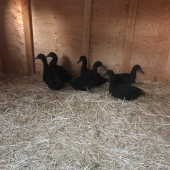




http://notquitethereyethomestead.blogspot.com/ --On the highway going from here to there the question is oft asked "are we there yet". The oft given answer is "not quite yet". So it goes with life and with my little piece of it. This is my story. I get to tell it my way. I hope you enjoy it.








Freakin' hippies and Squares, since 1986















http://notquitethereyethomestead.blogspot.com/ --On the highway going from here to there the question is oft asked "are we there yet". The oft given answer is "not quite yet". So it goes with life and with my little piece of it. This is my story. I get to tell it my way. I hope you enjoy it.















http://notquitethereyethomestead.blogspot.com/ --On the highway going from here to there the question is oft asked "are we there yet". The oft given answer is "not quite yet". So it goes with life and with my little piece of it. This is my story. I get to tell it my way. I hope you enjoy it.




 1
1




Jack Spirko,
The Survival Podcast
 2
2











 1
1




Ask me about food.
How Permies.com Works (lots of useful links)

 1
1




"You may never know what results come of your action, but if you do nothing there will be no result”
How Permies.com Works
Be Nice




http://notquitethereyethomestead.blogspot.com/ --On the highway going from here to there the question is oft asked "are we there yet". The oft given answer is "not quite yet". So it goes with life and with my little piece of it. This is my story. I get to tell it my way. I hope you enjoy it.











Owner, Etta Place Cider




http://notquitethereyethomestead.blogspot.com/ --On the highway going from here to there the question is oft asked "are we there yet". The oft given answer is "not quite yet". So it goes with life and with my little piece of it. This is my story. I get to tell it my way. I hope you enjoy it.

|
She said she got a brazillian. I think owning people is wrong. That is how I learned ... tiny ad:
permaculture thorns, A Book About Trying to Build Permaculture Community - draft eBook
https://permies.com/wiki/123760/permaculture-thorns-Book-Build-Permaculture
|



